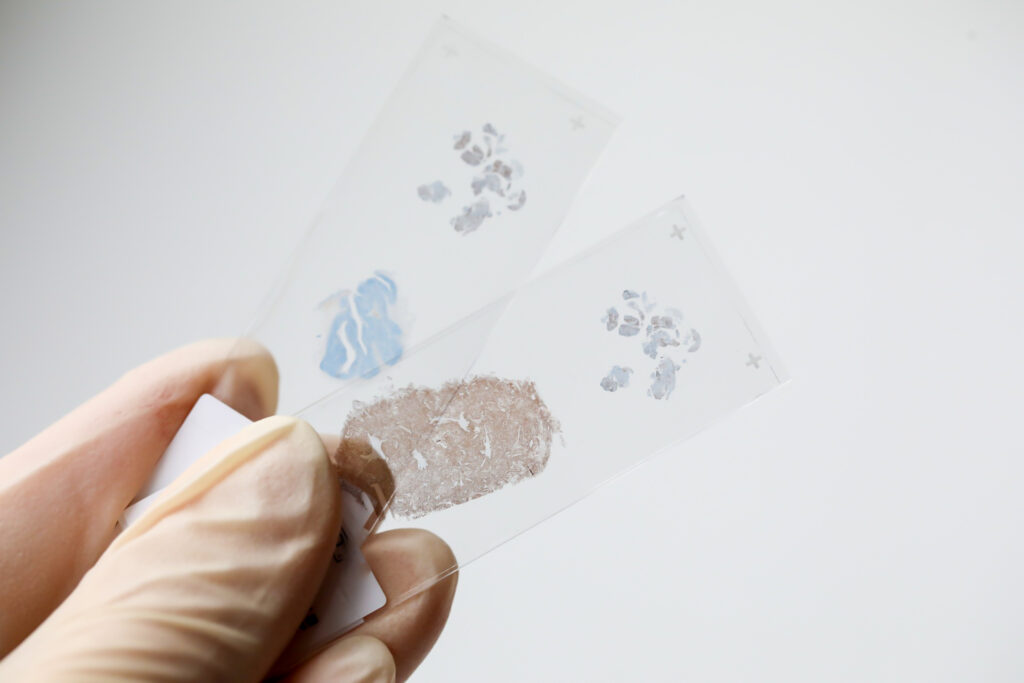What Are Cancer Biomarkers? 5 Common Types.
Cancer research and treatment have advanced significantly over the years, with the discovery of cancer biomarkers playing a critical role in personalized medicine. What exactly are cancer biomarkers, and why are they so important? Let’s explore these critical signals, their types, and how they influence treatment options, paving the way for more precise and effective therapies.

What Are Biomarkers in Cancer?
A biomarker, short for biological marker, is a measurable indicator of a biological condition or process. Biomarkers in cancer are specific molecules or genes that signal the presence, progression, or characteristics of cancer. The presence of cancer or other related conditions, like inflammation, causes the tumor or other tissues to produce the markers. These indicators can be found in blood, urine, or other bodily fluids and serve as essential tools for early detection, diagnosis, prognosis, and treatment.
Examples of biomarkers for cancer include:
- HER2: Associated with certain types of breast cancer.
- PSA (Prostate-Specific Antigen): Indicates prostate cancer.
- CA-125: A marker for ovarian cancer.
- KRAS mutations: Linked to colorectal and lung cancers.
The Role of Cancer Biomarkers in Treatment
Cancer biomarker testing has revolutionized the way doctors treat cancer. By identifying specific biomarkers, clinicians can tailor treatment to an individual’s unique genetic makeup, a practice known as precision medicine. This approach ensures that patients receive the most effective therapies while minimizing side effects.
For example:
- Targeted Therapies: Biomarkers like EGFR and ALK guide the use of targeted therapies for lung cancer, offering treatments designed to attack specific genetic mutations.
- Immunotherapy: Biomarkers such as PD-L1 help predict a patient’s response to immune checkpoint inhibitors, a type of immunotherapy.
- Chemotherapy Optimization: Testing biomarkers can help avoid ineffective chemotherapy regimens by identifying whether a tumor is likely to respond.
Types of Biomarkers in Cancer
The vast list of biomarkers in cancer can be categorized into several types based on their roles in detection and treatment:
1. Diagnostic Biomarkers
These biomarkers help detect cancer at an early stage. For instance, BRCA1 and BRCA2 mutations indicate a higher risk of breast and ovarian cancers.
2. Prognostic Biomarkers
Prognostic biomarkers provide information about a patient’s overall outcome regardless of treatment. For example, high levels of LDH (lactate dehydrogenase) in melanoma patients may signal a worse prognosis.
3. Predictive Biomarkers
These biomarkers predict how a patient is likely to respond to a specific treatment. HER2 status in breast cancer determines the efficacy of HER2-targeted therapies like trastuzumab.
4. Monitoring Biomarkers
Monitoring biomarkers track the progression of the disease or the effectiveness of treatment. For instance, CEA (Carcinoembryonic Antigen) is often monitored in colorectal cancer.
5. Therapeutic Biomarkers
Therapeutic biomarkers identify potential targets for treatment, such as mutations in the BRAF gene for melanoma treatment.
Cancer Biomarker Testing: What You Need to Know
Biomarker testing for cancer involves analyzing tissue, blood, or other samples to identify the presence of specific markers. This process is crucial for developing personalized treatment plans. The following steps outline the typical biomarker testing process:
- Sample Collection: A tissue biopsy or blood sample is collected from the patient.
- Laboratory Analysis: Advanced techniques like next-generation sequencing (NGS) or immunohistochemistry (IHC) are used to analyze the sample.
- Result Interpretation: Oncologists review the findings to determine the most suitable treatment options.
The rise of biomarker testing has underscored the importance of high-quality samples. Comprehensive biobanks provide researchers with the resources needed for accurate biomarker identification and testing.
The Researcher’s Cancer Biomarkers List
Here is a list of cancer biomarkers commonly used in clinical practice and research:
- HER2: Breast cancer
- EGFR: Lung cancer
- PD-L1: Various cancers (for immunotherapy)
- KRAS: Colorectal and lung cancers
- ALK: Non-small cell lung cancer
- BRCA1/BRCA2: Breast and ovarian cancers
- CA-19-9: Pancreatic cancer
- AFP (Alpha-Fetoprotein): Liver cancer
- PSA: Prostate cancer
This list of biomarkers in cancer continues to grow as researchers uncover new indicators, making cancer treatment increasingly precise and effective.
The Future of Cancer Biomarkers
The field of biomarkers in cancer is rapidly evolving. As scientists uncover more biomarkers, the possibilities for early detection, improved prognosis, and personalized treatment expand. Technologies such as liquid biopsies, which analyze biomarkers from blood samples, are paving the way for less invasive testing methods.
Furthermore, advances in machine learning and artificial intelligence are helping researchers analyze complex biomarker data, leading to groundbreaking discoveries that will shape the future of oncology.
Why Biomarker Testing Matters
Understanding biomarkers for cancer and utilizing biomarker testing can significantly enhance treatment outcomes. Early detection through biomarker testing often leads to better survival rates and targeted therapies minimize unnecessary treatments, improving the patient’s quality of life.
However, the success of biomarker testing heavily depends on the quality of the sample used. Biospecimen providers play a vital role in ensuring researchers have access to the highest quality samples.
Partner with Superior BioDiagnostics to Supply Your Biomarker Research
At Superior BioDiagnostics, we understand the pivotal role high-quality biospecimen samples play in advancing cancer research and treatment. Our extensive inventory includes a diverse range of normal and malignant/disease-state samples FFPE samples, fresh-frozen, and biofluid samples, all sourced ethically and produced with precision.
At Superior BioDiagnostics, you gain access to:
- Expertly curated biospecimen samples tailored to your research needs.
- A robust list of biomarkers in cancer ensures comprehensive testing.
- Reliable next-day shipping to meet urgent project deadlines.
Don’t leave your biomarkers research to chance. When you order from Superior BioDiagnostics’ premium biospecimen services, you can drive innovative discoveries that transform cancer treatment. Contact us today to learn how our biobank can support your cancer research.
